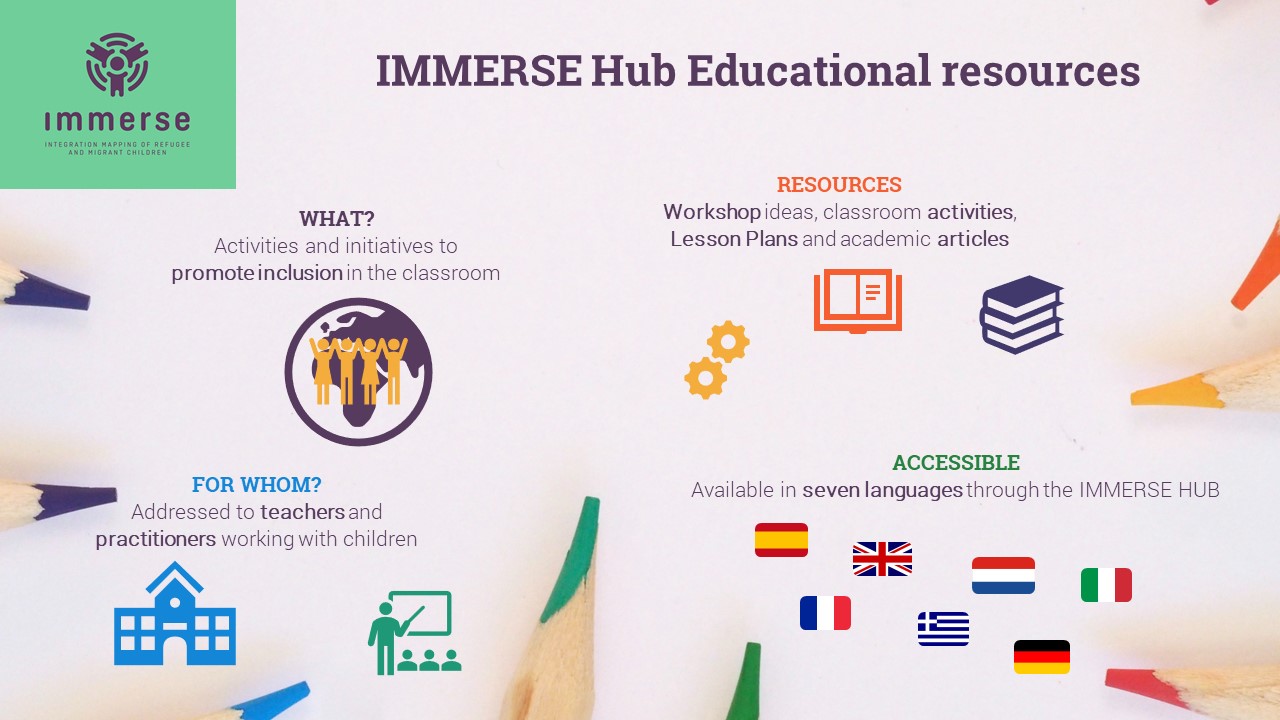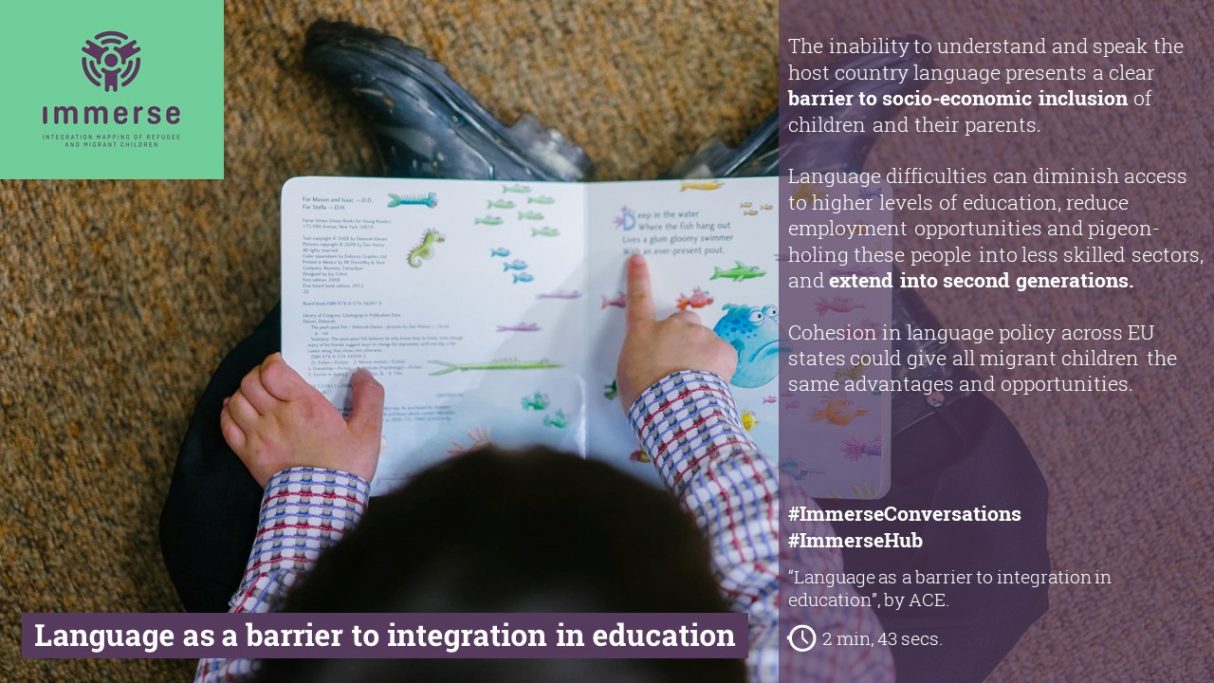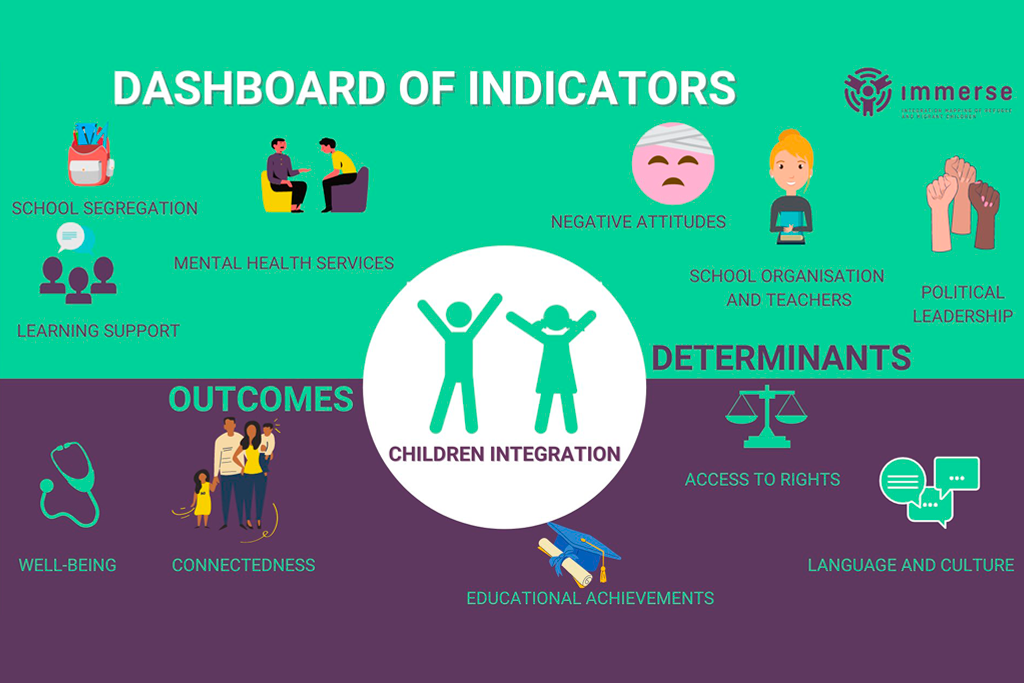Description
The aim of the project is to provide non-formal education and homework support to refugee and migrant children, as well as their parents, in order to contribute to children’s smooth integration into the formal education and parents’ social inclusion into the society. The NGO ELIX responded with this project to the increasing influx of refugees in Greece. The project is ongoing since 2015. Currently, the activities are being implemented in the area of Attica, in three schools of the Municipality of Athens, in Eleonas and Skaramangas refugee camps, and the Educational Center of ELIX in the city centre of Athens. In the past, ELIX had also developed actions in other locations. The project activities include: homework support for 6-15 year old children in coherence with formal education and remedial education through Greek and mother tongue teachers, mother tongue education, language and life-skills education for out-of-school children, early childhood education (psychosocial support, cognitive and socioemotional development and school readiness), promotion of digital learning and teachers’ capacity building. The project has received funding from the DG Migration and Home Affairs of the EC, the International Organization for Migration, the Church of Sweden, Finn Church Aid, Unicef and Tides Foundation.
- Access to compulsory education
- Children complete compulsory education
- Children maintain their cultural identity while adopting new cultural values and intercultural competences
- Children remain in (formal) education beyond compulsory levels / Access to (formal) non-compulsory education
- Children's competence in host language
- Children's life satisfaction / happiness
- Children's sense of belonging
- Teachers
- Types & levels of (formal) non-compulsory education attended
Evaluation ex post
Evaluation is not available. More information might be available on demand at elix@elix.org.gr
An annual review for the school year 2017-2018 is available at the following link.
https://www.elix.org.gr/en/press-announcements/annual-school-period-report-2018-2019-learning-4-integration-en
Projects’ deliverables
The project is included in the Sustainability Observatory, which constitutes a national monitoring mechanism gathering all the best practices and initiatives that are developed under the framework of sustainable development, responsible business and social responsibility in our country at the economic, environmental and social level (see link below).
The project is also included into an EU’s Good Practice Handbook.
https://observatory.sustainablegreece2020.com/en/practice/learning-integration-project-quality-learning-and-non-formal.1061.html
Reproducibility
In February 2019 a delegation of Finnish teachers visited the Learning Centers and Elaionas’ camp in order to be informed about the project. The participants were working with migrants/refugees in Finland and represented four different areas and fields in education: vocational training, integration training, literacy training and high education for immigrants. All the participants were teachers for Finnish as a second language.
In October 2018 a group of Finnish students visited the ongoing classes of the learning center and had the opportunity to meet their peers, refugees and migrants, who shared their personal experiences with them.
Motivation for the submission
The Learning for Integration Project, which offers quality learning and non-formal education for refugee and migrant children in Greece, is relevant to the IMMERSE project because it provides an holistic approach to cover the need of its beneficiaries. It focuses on education but takes also into account the well-being of children. Furthermore, its activities include support for families and educators.



